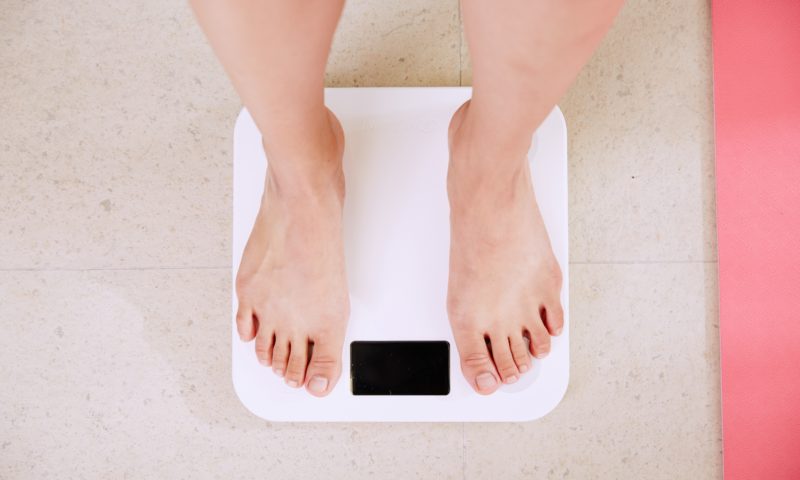If you weigh yourself frequently throughout the week (daily, every other day), you’ve no doubt seen the scale produce varying numbers without much rhyme or reason. In a span of just 48 hours, you could see a 4-5 pound difference. If you’ve stayed on track, what’s the deal?
A sudden spike on the scale can be a real mood-killer. No one likes to see that number inch back up, even if the difference is small. But rest assured, you shouldn’t read too far into that variable number. Your body weight fluctuates daily, but for a lot of innocent reasons.
Why Up and Down?
Your body weight moves up and down each day for a number of known factors, but probably not because you’re making unhealthy choices. That number isn’t reading the weight of your body fat, which is what you’re really trying to lose if you’re working at weight-loss.
Some of those factors include:
Time of Day
You’ll probably see a 2-4 lb difference if you weigh yourself at different times during the day. If you weigh yourself first thing in the morning after using the restroom and before breakfast, the number will be smaller than if you had waited until evening. If you frequently check the scale, eliminate this variable by weighing yourself at the same time each day, preferably in the morning.
High-salt Foods
Foods high in salt can cause water retention that adds pounds to the scale. If the number is higher than you’re anticipating, you could have recently eaten a high-sodium meal. Examples include frozen meals, soups or savory sauces. Just remember that sodium content affects the scale drastically. It’s also best to consume high-sodium foods only in moderation.
High-carb Foods
Like sodium, foods high in carbs can add water weight. If you like bread, pasta, rice, potatoes or other starchy carbs, you’ll probably see a small fluctuation on the scale after eating some.
The After-exercise Effect
Did you nail your workout last night and notice a small plummet on the scale? There’s a good chance that sweating helped you lose water weight. While this isn’t exactly a drawback, remember that any fluids lost through exercise should be consumed in equal amounts.
Changes in Hormones
Changes in your hormones will often produce water retention. This is also why many women complain about stomach bloat before or during their menstrual cycle. If your hormones are on an upswing for any reason, either avoid stepping on the scale or do so forgivingly.
The Weight of Food
Having food contents in your stomach in general can add some extra weight to the scale. This is especially noticable after a large meal like on Thanksgiving. Bowel movements can also cause your weight to fluctuate a bit, so if your stomach is very full, don’t panic just yet.
The Bottom Line
You can’t always control the above factors, but you can control a daily routine of healthy behaviors that keep you on the right track. If the scale fluctuates anywhere from half a pound to four pounds, relax a bit. This is why it is suggested you only weigh yourself once per week or bi-monthly. But if you see a difference of five pounds or greater, it might be more than just water weight. Consider revisiting your choices and what could have caused the increase.






